Evidence Based Alcohol Treatment

Understanding Evidence-Based Alcohol Treatment
Alcohol use disorder (AUD) presents a significant public health challenge, affecting millions and resulting in severe personal and societal costs. Effectively addressing AUD requires approaches supported by scientific evidence, ensuring the best possible outcomes for those affected. This article explores the best practices in evidence-based treatments available for AUD, detailing therapies, medications, and support mechanisms that have been proven to work.
Defining Evidence-Based Treatments for AUD
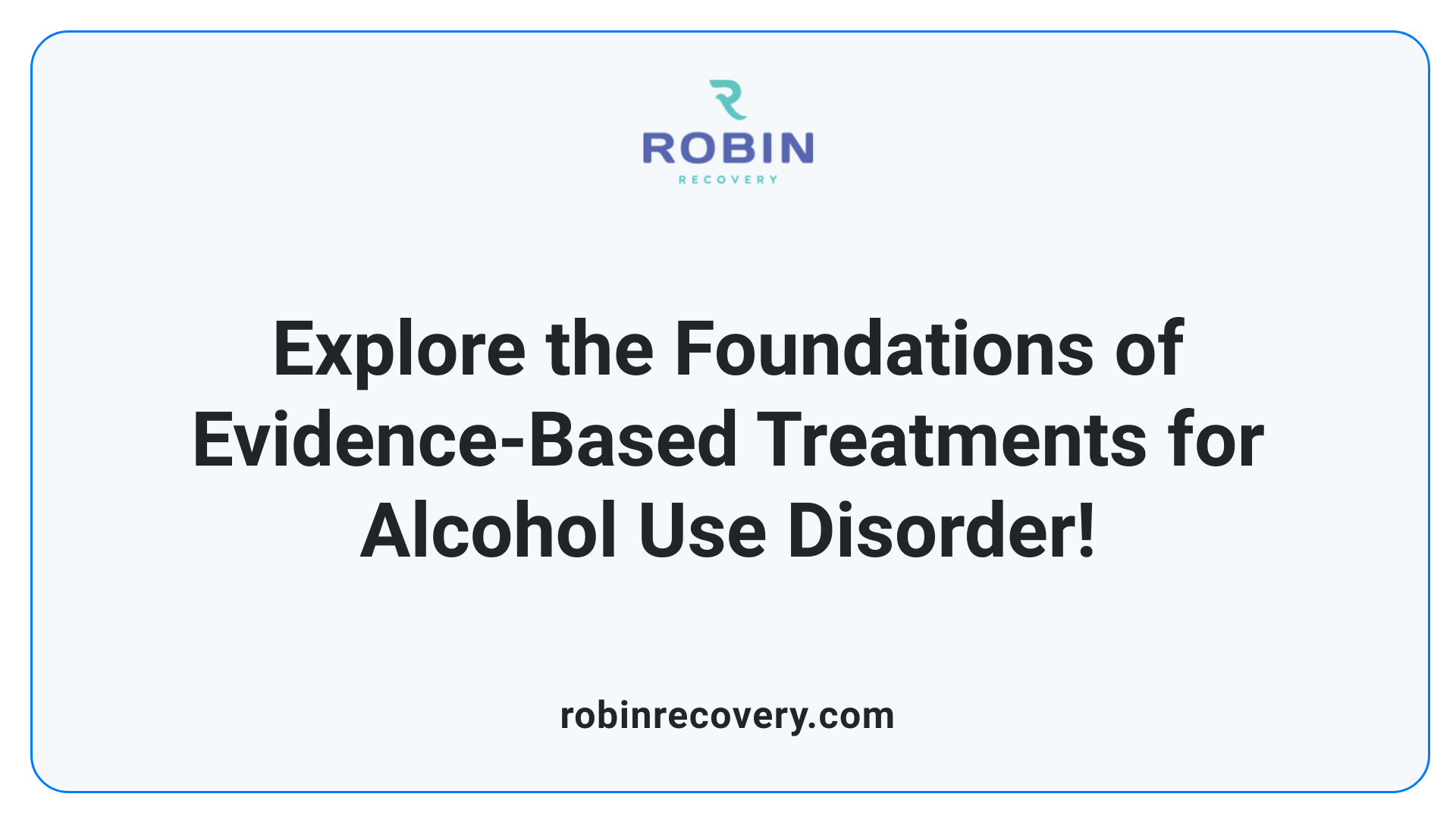
What evidence-based treatments exist for alcohol use disorder (AUD)?
Evidence-based treatments for alcohol use disorder (AUD) encompass a variety of behavioral and pharmacological interventions. These treatments are based on established research and clinical guidelines, ensuring their efficacy.
Some key interventions include:
- Cognitive Behavioral Therapy (CBT): This approach helps individuals identify and change negative thought patterns surrounding alcohol use, promoting healthier coping strategies.
- Motivational Enhancement Therapy (MET): Focusing on enhancing an individual's motivation to quit drinking, MET facilitates change by addressing ambivalence.
- Dialectical Behavior Therapy (DBT): Integrating cognitive-behavioral techniques with mindfulness, DBT is especially helpful for those with co-occurring mental health issues alongside AUD.
- Contingency Management (CM): This model incentivizes sobriety by offering tangible rewards for meeting treatment goals, thus effectively reducing alcohol use.
Types of evidence-based interventions
Various targeted therapies have also gained traction, particularly for individuals with dual diagnoses. For example, interventions that integrate treatment for both AUD and post-traumatic stress disorder (PTSD) have demonstrated substantial promise. These include:
- Concurrent Treatment of PTSD and Substance Use Disorders Using Prolonged Exposure: This model combines relapse prevention strategies with prolonged exposure therapy, typically structured over 12 sessions.
- Seeking Safety: Designed to address trauma and substance use simultaneously, this approach improves outcomes for individuals struggling with both conditions.
- Integrated Cognitive Behavioral Therapy: Focusing on both AUD and PTSD, this method provides a coherent framework to optimize recovery.
While the effectiveness of pharmacotherapy for comorbidities is still being evaluated, incorporating comprehensive behavioral strategies remains essential to enhancing recovery rates.
Core Practices in Evidence-Based Addiction Treatment
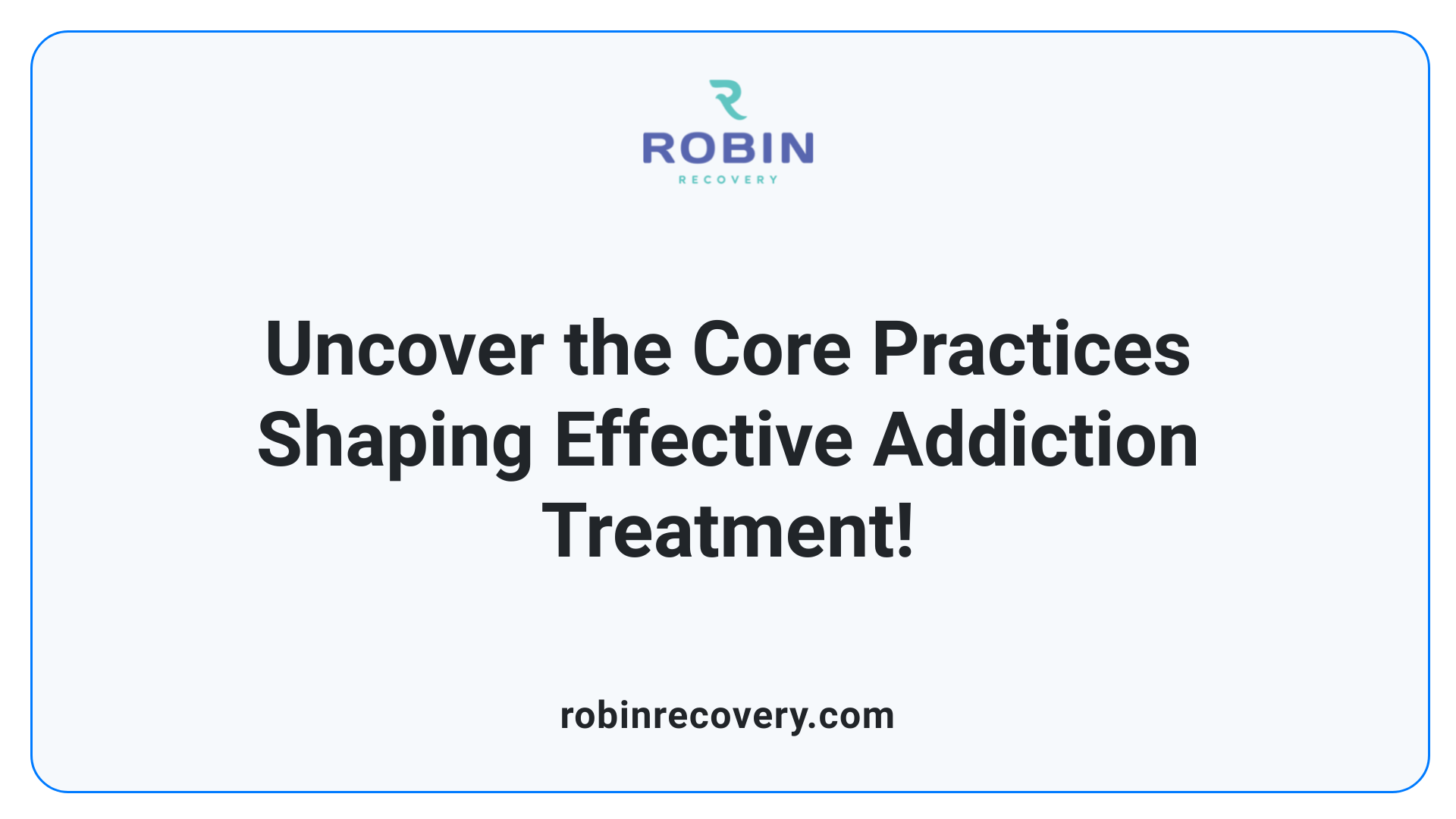
What are evidence-based practices in addiction treatment?
Evidence-based practices in addiction treatment are interventions designed to address mental health and substance abuse issues that have been scientifically shown to be effective. They are rooted in research, ensuring that the methods used will maximize the efficacy of treatment.
Common evidence-based practices include:
- Motivational Interviewing: A client-centered approach that encourages behavior change by resolving ambivalence about quitting substances.
- Cognitive Behavioral Therapy (CBT): A psychotherapy method that helps individuals identify and change negative thought patterns and behaviors related to addiction.
- Brief Treatment: Short interventions designed to address substance misuse during limited interactions, suitable for busy healthcare settings.
- Trauma-informed Care: A framework that understands and responds to the complexities of trauma, essential for outlining patient support in addiction recovery.
- SBIRT (Screening, Brief Intervention, and Referral to Treatment): A comprehensive, integrated, public health approach for delivering early intervention and treatment services.
Additional approaches often included in evidence-based practices:
- Culturally-responsive care: Tailors interventions to fit the cultural context of the patient.
- Housing First: Prioritizes providing homeless individuals with permanent housing as a main goal of treatment.
- Treatment for co-occurring disorders: Addresses both addiction and mental health issues simultaneously to improve recovery outcomes.
- Person-centered planning: Focuses on individual needs and preferences while designing treatment plans.
Maintaining fidelity to these models is crucial, requiring adherence to specific guidelines or manuals to ensure effectiveness. Resources like the Evidence-Based Practices Resource Center by SAMHSA aim to support communities and clinicians in the implementation of these practices effectively, bridging the gap between research and real-world application.
Overview of therapeutic approaches
Various therapeutic approaches form the core of addiction treatment, each focusing on different aspects of recovery:
Approach Description Effectiveness Cognitive Behavioral Therapy (CBT) Reshapes negative thought patterns to support recovery and symptom management. Proven effective for addiction and mental health conditions, helps maintain abstinence. Dialectical Behavior Therapy (DBT) Combines CBT with mindfulness strategies, particularly helpful for individuals with co-occurring disorders. Effective for managing emotions, improving interpersonal relations, and reducing substance use. Motivational Enhancement Therapy (MET) Short-term intervention that enhances motivation to change by addressing ambivalence about quitting substances. Useful for individuals unsure about their treatment goals. 12-Step Facilitation Therapy Guides individuals through principles of mutual support groups like Alcoholics Anonymous. Effective in fostering personal growth and accountability through community support. Contingency Management (CM) Provides tangible rewards for meeting specific treatment goals related to sobriety. Proven effective in promoting and sustaining abstinence. Medication-Assisted Treatment (MAT) Combines medications with behavioral therapies to reduce cravings and manage withdrawal symptoms. Contributes significantly to long-term sobriety by addressing both psychological and physiological aspects of addiction.
These diverse methodologies showcase how tailored approaches in treatment can effectively support individuals on their path to recovery from substance use disorders.
Criteria for Evaluating Evidence-Based Treatments
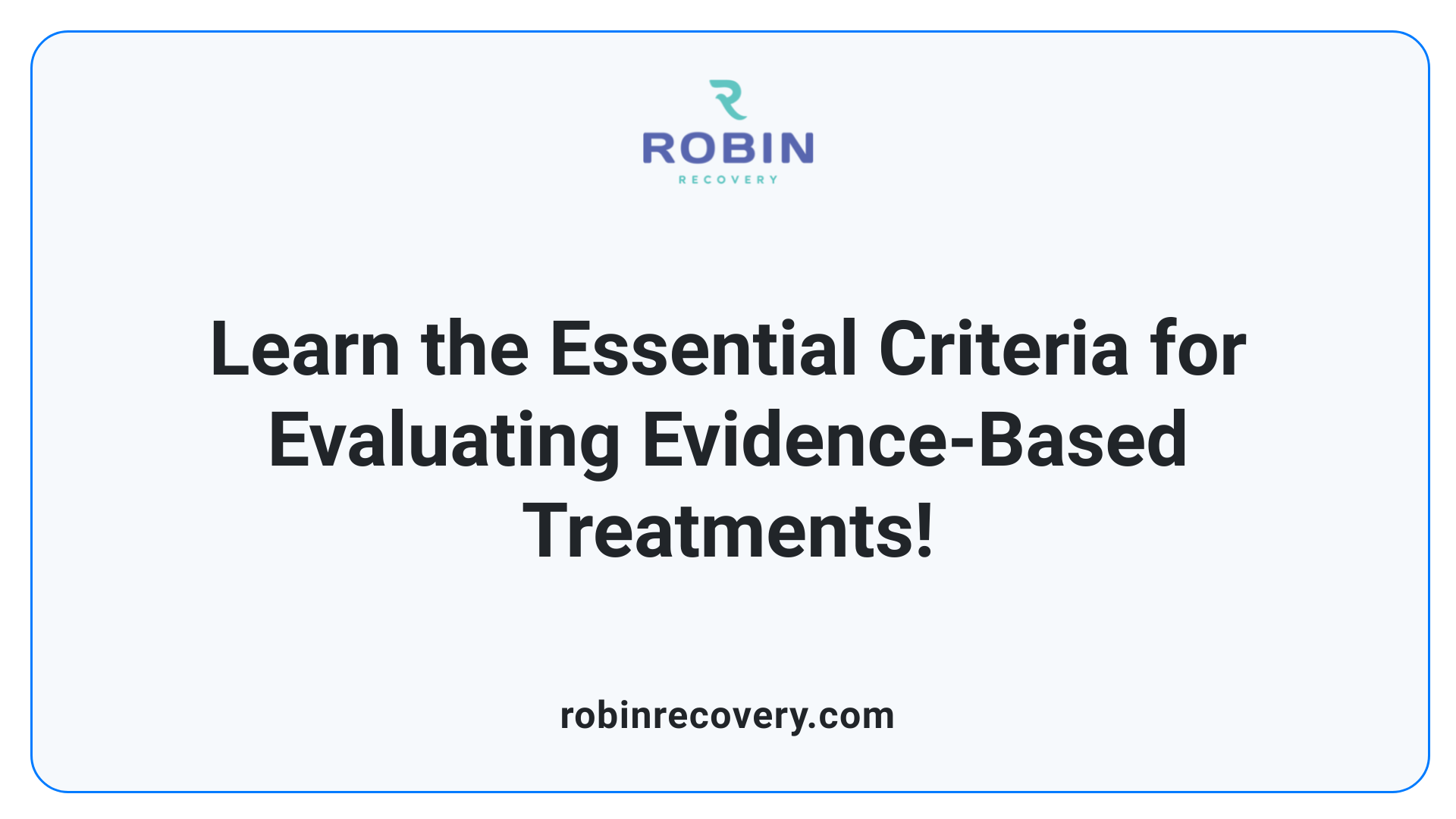
What are the criteria for evidence-based treatment?
Evidence-based treatments (EBTs) in addiction recovery depend on three fundamental criteria that ensure the effectiveness and appropriateness of treatment plans:
- Best Available Evidence: This includes research findings, clinical trials, and systematic reviews that demonstrate the efficacy of specific treatments for substance use disorders.
- Clinical Expertise: Practitioners apply their unique knowledge and skills in the evaluation and personalization of treatment strategies, tailoring approaches to fit individual patient needs.
- Patient Values and Circumstances: Effective care integrates the patient's preferences, cultural values, and specific circumstances, ensuring the treatment aligns with their goals and lifestyle.
Organizations, like the American Psychological Association, provide guidelines that synthesize this evidence, helping clinicians apply scientifically validated methods in their practice while maintaining a focus on the individual patient.
Role of research and guidelines
Research underpins the establishment of EBTs, shaping clinical guidelines and treatment protocols. By evaluating various treatment modalities, studies help identify those with robust outcomes in improving sobriety and managing addiction behaviors. The integration of these findings into clinical practice supports a more structured approach to addiction treatment, emphasizing the importance of adapting evidence to meet diverse patient needs effectively.
Exploring Effective Alcoholism Treatments
What constitutes the most effective treatment for alcoholism, and how does it differ from general advice like avoiding alcohol?
The most effective treatment for alcoholism, or alcohol use disorder (AUD), requires a comprehensive strategy rather than simplistic advice to avoid alcohol. The treatment process integrates several components that are tailored to the individual's unique needs.
Behavioral Therapies
Professionally led treatments often include evidence-based behavioral therapies, such as Cognitive-Behavioral Therapy (CBT) and Motivational Enhancement Therapy (MET). These therapies are designed to help individuals understand their personal triggers for drinking and develop healthier coping mechanisms. CBT focuses on changing negative thought patterns, while MET encourages motivation and goal setting.
Medications
Pharmacotherapy is a crucial part of AUD treatment. Three FDA-approved medications—Naltrexone, Acamprosate, and Disulfiram—play significant roles in managing cravings and withdrawal symptoms. Naltrexone, for instance, works by blocking the pleasurable effects of alcohol, helping reduce the urge to drink.
Mutual Support Groups
Support systems are also vital. Groups like Alcoholics Anonymous (AA) provide peer support, accountability, and a sense of community, which can significantly enhance recovery outcomes through shared experiences and support.
In essence, effective treatment for AUD is complex and individualized, leveraging a combination of therapies and support networks to address the multifaceted nature of alcoholism. This tailored approach is in stark contrast to generic, one-size-fits-all advice.
Role of Medications in Treating AUD
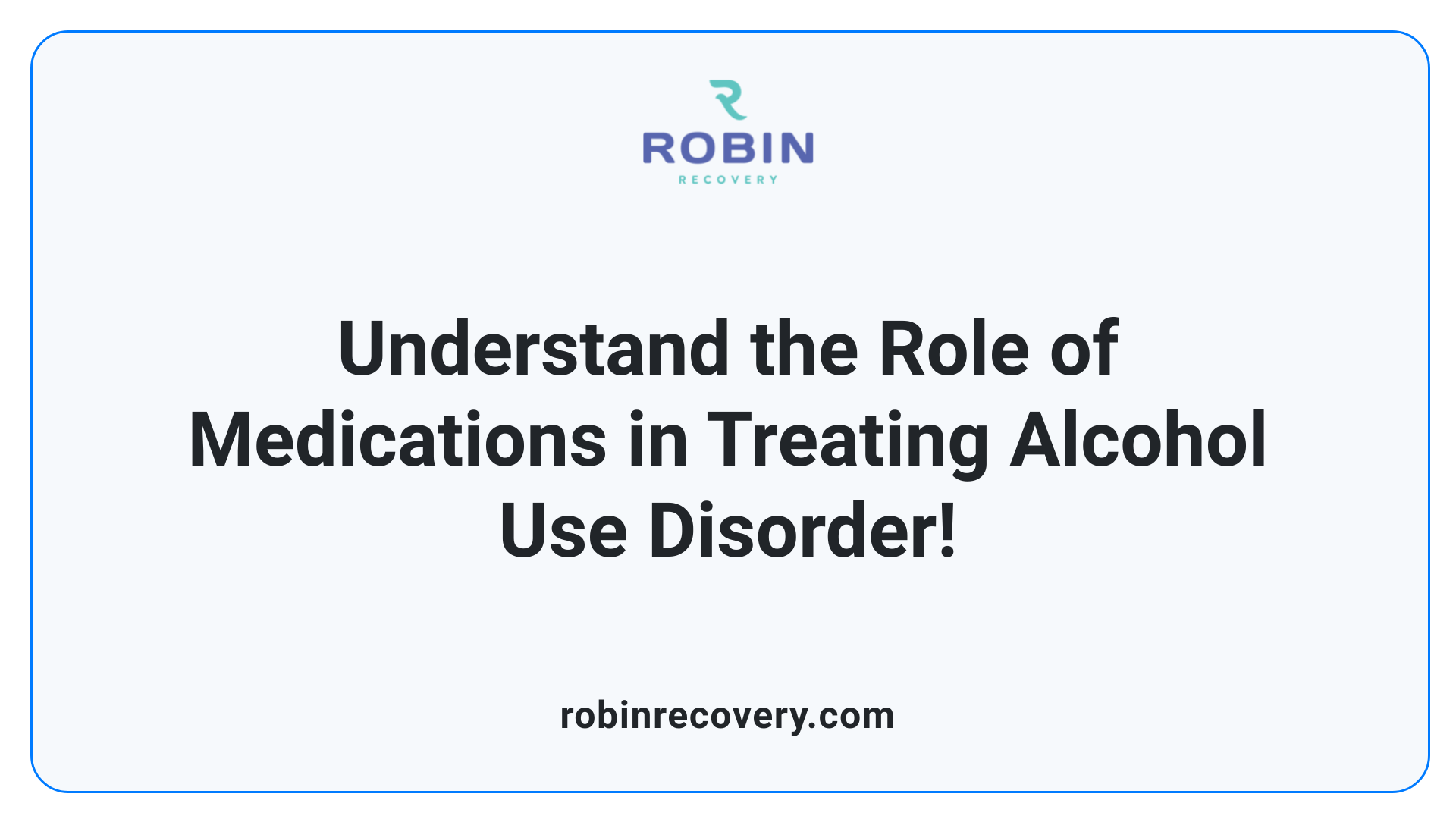
FDA-approved medications for AUD
Alcohol Use Disorder (AUD) can be effectively treated with three FDA-approved medications: Naltrexone, Acamprosate, and Disulfiram. These medications serve distinct purposes in the recovery process:
- Naltrexone: An opioid antagonist that blocks the rewarding effects of alcohol, it has been shown to reduce relapse rates.
- Acamprosate: This medication helps manage cravings associated with withdrawal, proving beneficial for maintaining abstinence.
- Disulfiram: It induces unpleasant physical reactions when alcohol is consumed, thus deterring individuals from drinking.
Effectiveness and application
Clinical evidence supports the effectiveness of these medications in enhancing treatment outcomes for AUD. Combining medication with behavioral therapies like Cognitive Behavioral Therapy (CBT) significantly improves recovery prospects.
- Combination Therapy: Patients who receive both medications and counseling demonstrate better compliance and reduced alcohol dependence.
- Individualized Treatments: Tailoring the choice of medication to the patient's unique circumstances, like history of withdrawal symptoms and motivation levels, is crucial for optimal outcomes.
A range of treatment options is available to support individuals battling AUD, emphasizing the importance of a customized approach to recovery.
Behavioral Therapies and Their Impact
Types of behavioral therapies for AUD
Behavioral therapies play a vital role in treating Alcohol Use Disorder (AUD). Among the most effective approaches are:
- Cognitive Behavioral Therapy (CBT): This therapy helps individuals recognize and alter negative thought patterns that fuel their addiction. It empowers patients to develop healthier coping mechanisms and improve their emotional well-being.
- Motivational Enhancement Therapy (MET): A short-term, client-centered approach that resolves ambivalence about quitting alcohol, encouraging behavior change by enhancing motivation.
- Dialectical Behavior Therapy (DBT): Integrating mindfulness techniques with cognitive-behavioral strategies, DBT is particularly beneficial for those with co-occurring mental health issues.
- Contingency Management (CM): This method incentivizes sobriety through rewards for maintaining treatment goals, effectively fostering positive behaviors and outcomes.
Effectiveness of behavioral interventions
Research indicates that these behavioral therapies yield promising results for individuals with AUD.
- CBT and MET have shown significant efficacy in reducing substance use and preventing relapse, directly impacting recovery success rates.
- Support groups, notably Alcoholics Anonymous, provide communal reinforcement for individuals in recovery, complementing formal therapies.
- Evidence demonstrates that combining behavioral therapies with medications, such as naltrexone and acamprosate, can further enhance treatment outcomes, tailoring them to individual needs.
Support Systems and Access to Care
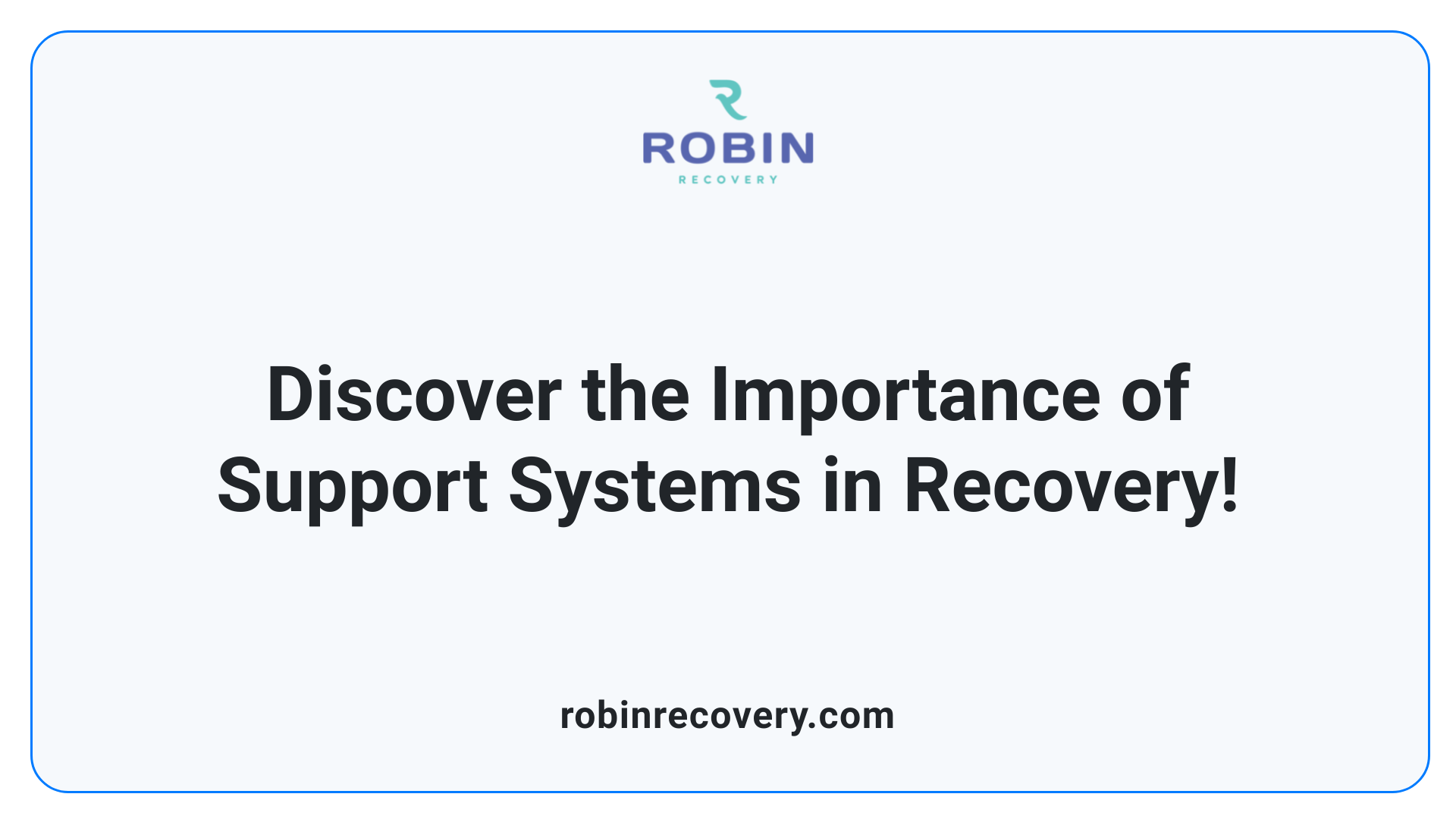
Importance of mutual support groups
Mutual support groups, such as Alcoholics Anonymous (AA), play a vital role in the recovery process for individuals facing alcohol use disorder (AUD). These groups offer community support, accountability, and understanding based on shared experiences. Participating in such groups can lead to significant benefits, helping individuals remain sober while building long-lasting relationships with peers who truly understand their struggles. Alternatives to traditional 12-step programs are also available, providing diverse options tailored to varied preferences and ensuring that support is accessible for everyone in recovery.
Access to treatment resources
Access to effective treatment resources is crucial for those battling AUD. SAMHSA’s National Helpline is a vital service that connects individuals with local treatment facilities and support groups for guidance on their path to recovery. It operates 24/7, offering assistance in both English and Spanish, ensuring broader accessibility. Importantly, the helpline is free and can direct callers to state-funded programs or sliding-scale fee facilities, eliminating insurance concerns as a barrier to care. With a reported increase in calls to the helpline, it’s evident that there is a growing need for these crucial resources, reinforcing the importance of having accessible support systems in place.
Building a Robust Path to Recovery
The road to recovery from alcohol use disorder is multifaceted, underscored by the critical role of evidence-based practices. By focusing on scientifically validated treatments, integrating a blend of therapies, medications, and community support, individuals are better equipped to achieve sustainable recovery. Continued research and diligent application of these practices hold the promise of transforming the landscape of AUD treatment, enabling more individuals to lead healthy, fulfilling lives.
References
- SAMHSA's National Helpline
- Recommend Evidence-Based Treatment: Know the Options
- Evidence-Based Treatments for Alcohol Use Disorder
- Drug and Alcohol Use — Evidence-Based Resources - health.gov
- Treatment of Alcohol Use Disorder | Psychiatry and Behavioral Health
- Implementation of evidence-based practice for alcohol and ...
- Addiction Treatment Methods | Evidence-Based Practices
- Evidence-based practices for substance use disorders - PMC
- Lack of Evidence in “Evidence Based Treatment” for Addiction
- Evidence-Based Practice is Important in Addiction Treatment
